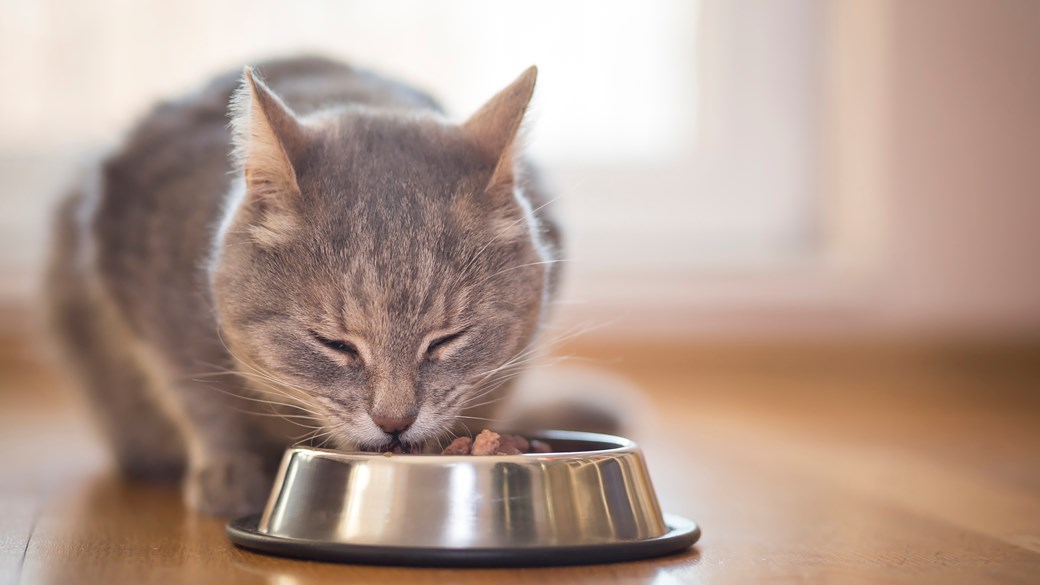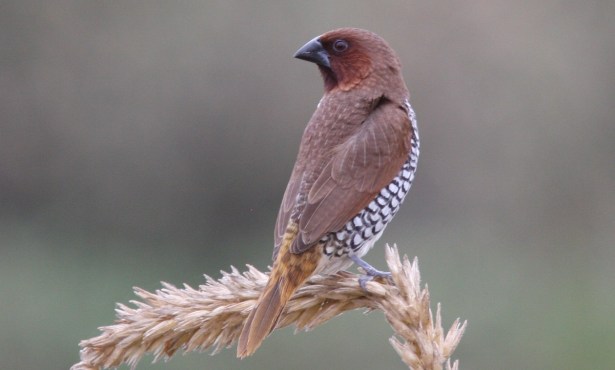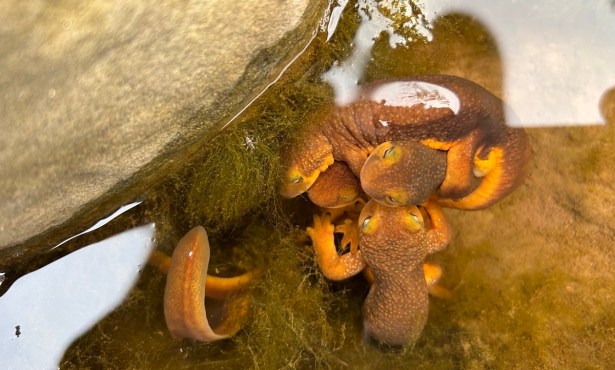Can Cats and Dogs Go Vegetarian?
It’s a Hard No for Cats and a Soft Maybe for Dogs

There is a new and somewhat concerning trend among pet owners wanting to turn their meat-eating animals into vegetarians. Of 3,673 cat and dog owners surveyed in the U.S. and U.K. last fall, a whopping 35 percent expressed interest in converting their pets to a plant-based diet.
Respondents who identified themselves as vegan were more likely to go meatless, with 78 percent indicating they would consider eliminating all animal products; 27 percent said they already had. The majority of both groups, however, said they’d only cut meat if they received the blessing of their vet and had hard data proving a vegetarian diet would meet the nutritional needs of their pets.
Due to the growing interest, Dr. Evelyn Brand at the Goleta Airport Pet Hospital often finds herself educating owners on veggie options. It can be a tricky conversation. “People sometimes impose their own views on what they think their pets should eat,” Brand said. “Emotion gets into it.”
For cats, it’s simple ― there is no safe vegetarian diet. Cats, Brand explained, are “obligate carnivores,” meaning they need meat to survive. Specifically, they require an amino acid called taurine, which they can only get through animal sources. Dogs and humans can synthesize taurine by other means, but felines cannot. “Owners will sometimes say, ‘I eat soy, so it’s fine for cats,’” Brand said. “No, it’s not.” Cats also require the high concentration of protein plants are unable deliver, Brand said. Cats deficient in taurine and protein will start to metabolize their own muscles and eventually go into heart failure.
For dogs, it’s a little more complicated. Dogs are “facultative carnivores,” which means they can technically survive on a plant-based diet if need be. But owners should only choose that option in very specific cases ― if the dog is allergic to all meat-based foods, for instance ― and under the guidance of a veterinarian, Brand said. Currently, the only vet-approved veggie foods on the market are offered by Purina and Royal Canin.
Brand also addressed what’s become a fad among dog owners of feeding their canines a grain-free diet. “I talk about this almost every day,” she said. Many owners have been led to believe through word of mouth that cutting grains is always healthier. Not true, said Brand. While going grain-free may be the right option for pets with certain food issues, it should be approached carefully, she explained.
The FDA is now investigating a potential link between particular types of grain-free food and a deadly kind of heart disease in dogs. It’s looking specifically at the foods that replace grains such as rice and corn with peas, lentils, and other legumes. The research is ongoing. “For now,” said Brand, “just stay away from legumes.”



